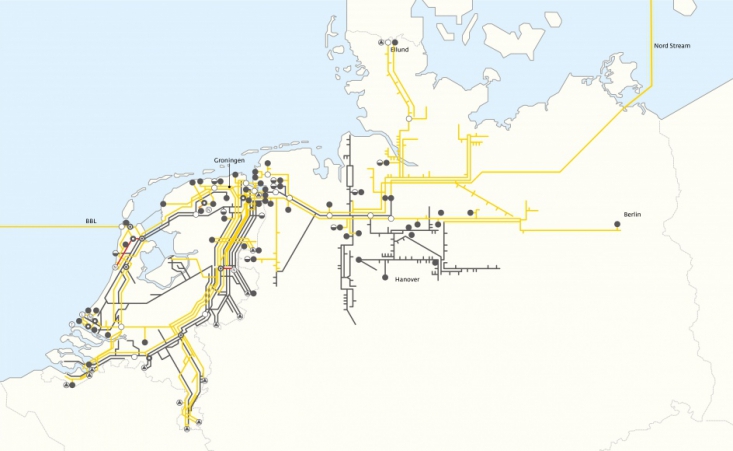Dutch TSO Challenges Regulator
Gasunie's grid operator subsidiary GTS is challenging the Dutch competition regulator ACM over its plans to cut tariffs gradually over the next five years. This will result in lower bills for Dutch customers and lower revenues for the state, but the state-owned operator claims the reasons are flawed.
The Authority for Consumers and Markets (ACM)conducted a benchmarking exercise of European TSOs and found that if the best performing TSO had a productivity level of 100%, then state-owned GTS’ productivity level was somewhere between 66% and 91%. ACM declined to identify which TSOs provided these particular comparisons, although the range of samples it used was very wide.
Based on the analysis, it has concluded that GTS incurs more costs than necessary. It is now consulting on its proposals, planning to publish a decision this September, along with the tariffs.
GTS said that it had objected against the ACM's approach from the outset. "The set-up of the study insufficiently takes into account the differences between (the costs of) operators and the conditions under which they operate. According to GTS, it is impossible to make an informed decision on the cost effectiveness on the basis of these studies. The widely differing rates of productivity, which the benchmark study shows according to the ACM, prove the inadequacy of the study method and the unreliability," it said in a statement.
It told NGE June 9 that differences between state-owned Gasunie, which owns GTS, and other operators in terms of legal duties relating to security of supply and quality conversion, plus differences in terms of the structure and organisation of the gas and gas transport market, invalidated the study.

Gasunie's grid (Credit: Gasunie)
The ACM says the revenues of GTS and the tariffs that follow from them must be in line with the necessary costs that the company must incur in order to be able to carry out its tasks, thereby making sure that users of natural gas do not pay more than necessary. It told NGE that it undertook the study on its own initiative, and not in response to complaints from shippers.
As well has handling nominations for some 120bn m³/yr of capacity, and cross-border flows to the UK, Belgium, France and Germany and two grids – one low calorie, for Groningen gas – and quality conversion facilities, GTS operates the Title Transfer Facility (TTF), Europe's largest gas trading hub. The Netherlands is also home to the Bergermeer storage facility for high-calorie gas, and to the Gate LNG import terminal -- the latter jointly owned by Gasunie and Dutch oil terminals operator Vopak.
The ACM told NGE that its sample comprised TSOs from Germany, Belgium, the UK, Spain, Portugal, Finland, Denmark, Greece and Croatia.
William Powell


